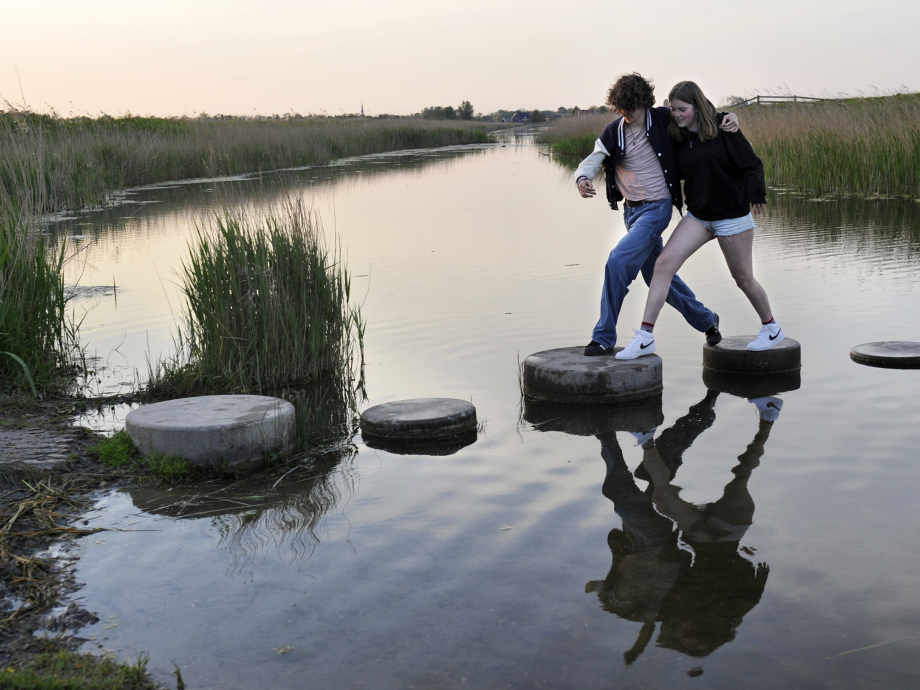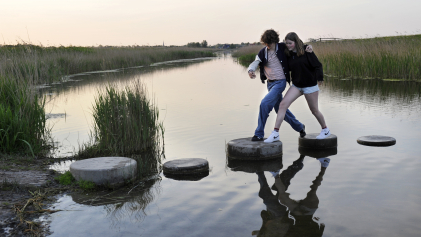Taking steps together now
It is unwise and undesirable to wait until the year 2100 to decide how the Netherlands will manage its radioactive waste. That is the conclusion of the Rathenau Instituut in its newly published report Taking steps together now. Especially in light of the government’s nuclear ambitions, new policies are needed today.

In short
- The Rathenau Instituut offers advice on how the decision-making process regarding the storage of radioactive waste can be organised.
- The government had planned to postpone decisions until the year 2100, but the Rathenau Instituut recommends taking action now.
- The government, together with society, could determine what is needed through five phases.
The Netherlands produces radioactive waste every day, for example through the generation of nuclear energy and the production of medical isotopes used in cancer treatment. Some of this waste remains hazardous for hundreds of thousands of years and must be stored safely. Finding such a storage site is socially and politically sensitive, and the process often takes many decades. At present, radioactive waste is stored temporarily above ground in Borssele, in the province of Zeeland.
The government plans to make a decision on a permanent solution around the year 2100. The Rathenau Institute concludes that this approach lacks a sense of urgency and clear direction. More action is needed—especially given the government’s plans to build new nuclear power plants. The Institute therefore advises dividing the decision-making process into several steps, involving society, and starting now.
The recommended approach differs from the government’s current strategy. The government has defined an end goal and intends to reason backwards from there. In contrast, the Rathenau Instituut advocates a step-by-step approach that looks ahead, exploring different management methods and options. This would create the direction and urgency that are currently missing.
“If you break the decision-making process into steps, you can start more quickly and remain more flexible,” says Eefje Cuppen, Director of the Rathenau Instituut. “At each step, it will be clear what topics are open for discussion and when society can have its say.”
Dividing the process into five phases
The Rathenau Instituut advises the government to divide the decision-making process into five phases. Each of these phases would last from several years to several decades. In every phase, the government should consult with society to determine what knowledge, policies, public participation, and funding are required. “In this way, the Netherlands can take steps together, and each phase will end with a decision that brings the country closer to a final solution,” says Cuppen.
According to the Rathenau Institute, the first step, the initiation phase, could begin in 2026 and take five to ten years to complete. During this phase, policies and legislation could be adapted, different management methods explored, roadmaps developed, and the public consulted.
Research and dialogue
The Rathenau Instituut carried out this study at the request of the Ministry of Infrastructure and Water Management. In recent years, the Institute has published several reports outlining how the Netherlands has dealt with its radioactive waste over the past decades, how other countries make decisions on this issue, what regulations apply, what knowledge is available, and how experts and stakeholders view the decision-making process. The newly published report serves as the final piece in this series. It is intended as input for the revision of the national programme for the management of radioactive waste, which the government is required to publish by 2026.
